#AutomotiveIndustry
Ghosn Tries to Speak With Alliance Board Over Big Changes, Blocked by Court
Rather than focus entirely on his upcoming court case, Carlos Ghosn, the former chairman of the Renault–Nissan–Mitsubishi Alliance, attempted to gain access to a meeting at Nissan Motor Co. to explain himself to the board.
Unfortunately for the fallen industry titan, the Tokyo District Court said such a meeting would violate the terms of his bail by placing him in direct contact with individuals involved in the charges brought against him.
With Ghosn Gone, Nissan CEO Allegedly Changes Mind About Retirement
Nissan’s Chief Executive Officer, Hiroto Saikawa, apparently intends to stick around a little longer than previously expected. According to unnamed Nissan staffers who spoke to Bloomberg, the CEO told executives he plans to stay at least three more years to help the automaker recover from the aftermath of the scandal involving Renault-Nissan-Mitsubishi Alliance head Carlos Ghosn — despite recently signalling his intent step down in the near future.
Saikawa was hand-picked by Ghosn as Nissan CEO in 2017. However, the two grew increasingly distant as talk of a potential merger with alliance partner Renault began to swell. In fact, Ghosn was actively working toward combining the companies up until his November arrest — which he attributed to interference from Nissan.
While still incarcerated, Ghosn admitted he was not pleased with Saikawa’s performance, and had been considering removing him from his role within the company. The Nissan CEO had taken a hardline stance against the merger, choosing to support Japanese interests first.
EPA: Automakers Too Reliant on Credits for Emissions Compliance
The Environmental Protection Agency released its annual assessment of new vehicles yesterday, and it was filled with good news. On average, fuel economy continues to improve. Cars are not getting heavier, horsepower keeps going up, and every major manufacturer managed was in compliance with greenhouse gas standards through the 2017 model year. However, the EPA also said it’s concerned that manufacturers frequently tap into stored-up regulatory credits to make this possible.
“Most large manufacturers used banked credits, along with technology improvements, to maintain compliance in model year 2017. Three large manufacturers achieved compliance based on the emission performance of their vehicles, without utilizing additional banked credits,” the agency explained.
The ability to bank credits by over-complying in a given year is seen by some environmental groups as a way for corporations to shirk their responsibility to the planet. But EPA Administrator Andrew Wheeler’s concerns regarding the system rest elsewhere.
The 2019 Geneva Motor Show Is Basically a Middle School Dance
As we get older, whole sections of our lives are mentally distilled into a handful of standout moments, accompanied by the broad strokes of shared experiences. Among them is the middle school dance, which really isn’t so much a dance as it is an opportunity for people to stand around wishing everyone would couple up and get the party started. Everyone’s hunting for a partner, but few will see that dream realized, leaving them to stand by their closest friends while they mumble “it sure would be nice to find someone to dance with” into their fifth cup of punch.
The Geneva Motor Show looked a lot like that this year. With car sales cooling, emission controls tightening, and ambitious mobility projects eating into automakers’ profit margins, many companies believe the industry is evolving. However, no one’s certain what the future holds, so they’re dabbling in everything. That’s not a sound business strategy, especially if there’s no one around to help you share the financial burden.
As a result, auto executives spent quite a bit of time in Geneva hinting that they could use a dance partner.
White House to Automakers: Choose a Side in the Great Gas War
The Trump administration has long been at odds with California and a coalition of supportive states that hope to block the rollback of Obama-era fueling regulations the current Environmental Protection Agency deems “unsustainable.” The EPA also says it’s inconsistent with consumer behavior. But automakers have behaved somewhat erratically on the matter, forcing the president to request (by proxy) that they make up their minds and pick a side before a final decision is made.
While industry leaders previously backed the more stringent regulatory framework set in place by the former president, they quickly converged on Washington after Trump assumed office in 2017, requesting a softening of Corporate Average Fuel Economy standards. After blowback from California and environmental activists, automakers took a more measured approach, publicly stating that they support green initiatives and reducing their own carbon footprint — and suggesting that a national deal be reached that pleases all parties.
Fence-sitting time might be over.
The Cost of Future-proofing: German Auto Industry to Invest $68 Billion Into EVs, Mobility, Data Over Next Three Years
The German Association of the Automotive Industry, known in its native tongue as Verband der Automobilindustrie (VDA), says its members have formally committed themselves to investing 60 billion euros (roughly $68 billion USD) into electrification and vehicular autonomy over the next three years.
The claim was made as part of a larger announcement serving as a rundown for what German automakers hope to achieve in a period where nothing seems certain.
The European Union, along with China and several other nations, have committed themselves to embracing electrification in a bid to lower emissions and modernize roadways. “In the next three years, we will invest over 40 billion euros in electric mobility, in addition to a further 18 billion euros for digitalization, and the development of networked or automated vehicles” said VDA President Bernhard Mattes, adding that German automakers anticipate 100 EV models on offer to the public by the end of that period.
Subaru Prepares For Largest Recall Yet
Expanding by leaps and bounds in the new millennium, Subaru effectively quadrupled its share of the U.S. market in the process. However, most of its production growth occurred in the last decade — leading to quality control problems unbefitting for a company that prides itself in sharing the same love as its customers.
Recalls are to be expected. No automaker can escape faulty components forever. But the frequency and scope of Subaru’s recalls (and scandals) over the past few years are especially bothersome, as they hint at an inability to catch mistakes, or perhaps a willingness to cut corners, as the company’s production volume targets the stratosphere. A new recall looming on the horizon will probably be the company’s largest to date.
Chinese Auto Market Not As Hot As Everyone Thought
China might not be the kind of market everyone thought it was — one without a ceiling, boasting unlimited potential for growth. One by one, automakers find themselves having to confront economic reality.
Despite amassing a network of factories that could theoretically outproduce the rest of the world, the Asian country’s automotive sector only operates at about half its total capacity. That’s disconcerting. Even Europe, site of some serious industrial headwinds of its own, manages to operate around 70 percent capacity.
While the reasons for China’s woes are ludicrously complicated, one of the most pressing issues is that its economy is slowing much earlier than anticipated. Automakers, both foreign and domestic, almost universally believed that The People’s Republic would surpass the United States as the world’s largest automotive market — and they were right. But investments kept pouring in, factories were built, and the market started to cool prematurely. The situation only grew worse as incentives dried up and people began buying fewer cars; now, 2019 is shaping up to be a very bad year for the nation’s automotive sector.
Report: VW to Invest $1.7 Billion Into Ford's Autonomous Arm
It appears that a presumed rough patch in Ford and Volkswagen’s relationship is over, now that The Wall Street Journal is reporting on VW preparing a nearly $2-billion investment into the Blue Oval’s autonomous development unit, Argo AI.
Earlier this month, claims arose that negotiations had reached an uncomfortable crossroad, with Volkswagen balking at Ford’s proposed admittance fee. Under the new deal, VW would set aside $600 million as an equity investment into Argo — acquiring half of the business in the process — followed by subsequent investments totaling $1.1 billion for the subsidiary’s research and development efforts.
Fiat Chrysler, JLR, Renault, Nissan, PSA Under Possible Antitrust Investigation
The European Commission is said to be investigating several automotive companies over possible antitrust violations relating to the sale of auto parts. According to Germany’s Der Spiegel, Renault, Nissan, PSA, Jaguar Land Rover and Fiat Chrysler Automobiles have all been placed under government scrutiny for possible price fixing. The report claims the manufacturers may have colluded to elevate the value of certain auto parts by as much as 25 percent.
Assuming the report is accurate, that would make this the EU’s second major automotive cartel investigation in the last two years.
Trump to EU: Expect Auto Tariffs Without Trade Deal
Earlier this week, the European Union warned that if the United States imposes any new tariffs on European-built vehicles, it can expect similar levies on American products. However, armed with the Commerce Department’s confidential report on automotive imports, President Donald Trump doesn’t appear remotely interested in backing down.
While Trump previously agreed not to impose additional duties on European cars, the arrangement hinged upon the two coming together on trade. Unfortunately, while both sides seem eager to work out a deal, they can’t quite manage to keep the constant threats down to a dull roar.
Hyundai Raided in South Korea Over Theta II Engine Recall
In 2017, United States safety regulators opened a formal investigation into the recall of roughly 1.7 million vehicles built by Hyundai Motor Co and its affiliate, Kia Motor Corp, after being tipped off by a former employee. The informant claimed the automaker wasn’t handling the issue properly. That same year, South Korean civic group YMCA filed a complaint with local prosecutors alleging the automakers delayed fixing engine defects that prompted the same recalls.
According to Reuters, South Korean prosecutors raided the offices of Hyundai Motor Group’s quality division in Seoul on Wednesday. While the investigation concerns the company’s Theta II engines, both investigations seek to nail down a timeline of the recalls and establish whether or not Hyundai handled the situation responsibly.
Modern Times Spell Trouble for Mom-and-pop Auto Dealers
When I was a lad, there were two family-owned and operated dealerships within walking distance of my home. Upon reaching driving age, one had already closed while the other began adding storefronts in different towns. It now has three locations, ensuring a meaty inheritance and lifelong job security for several members of my graduating class.
It’s the nature of the free market and a familiar story. According to an assessment from the National Automobile Dealers Association, singular showrooms have gone from 7,514 strong to just 4,904 between 2008 and 2018. That’s a 35-percent decline, whereas the number of dealers with 10 or more stores increased 62 percent over the same period.
Extreme Vitriol: Unifor Squares Off With Ontario, Receives Support From Veteran Rockstar
The Ontario government isn’t pleased with Unifor’s handling of General Motors’ decision to close Oshawa Car Assembly. Like the UAW, Canada’s autoworker union has been extremely vocal in its opposition to GM’s restructuring plan. Over the last few months Unifor members have picketed, held multiple rallies, protested the automaker during the North American International Auto Show, called for a boycott, and aired commercials condemning the manufacturer during the Super Bowl.
Todd Smith, Ontario’s minister of economic development, job creation and trade, believes all of this has been detrimental to future business investment. “The Unifor message hasn’t been helpful, not just for General Motors but the auto industry in Ontario,” he said during the Automotive News Canada Congress in Toronto.
Volkswagen, Ford Spar Over Alliance Investments
Hoping to minimize development costs, Volkswagen Group and Ford Motor Co. recently forged an automotive alliance. Collaborative projects officially include commercial vans and pickup trucks, though the duo are also said to be working together on electric and autonomous vehicle development. Unfortunately, trouble in pinning down the details has slightly soured the relationship.
Through the alliance, Ford could make use of VW’s MEB platform, aiding its plan to roll out a myriad of electric cars in the coming years, while Volkswagen would have access to the Blue Oval’s autonomous unit, Argo AI. But the Germans reportedly aren’t interested in paying what Ford’s asking.









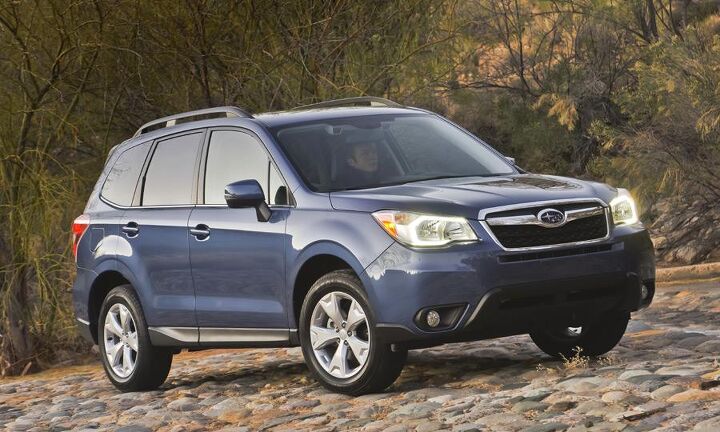
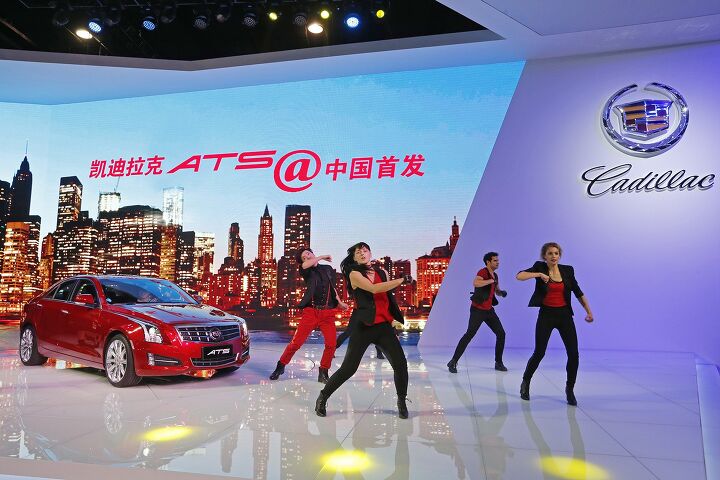
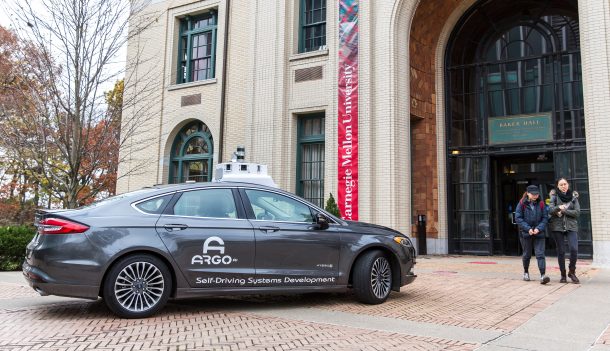

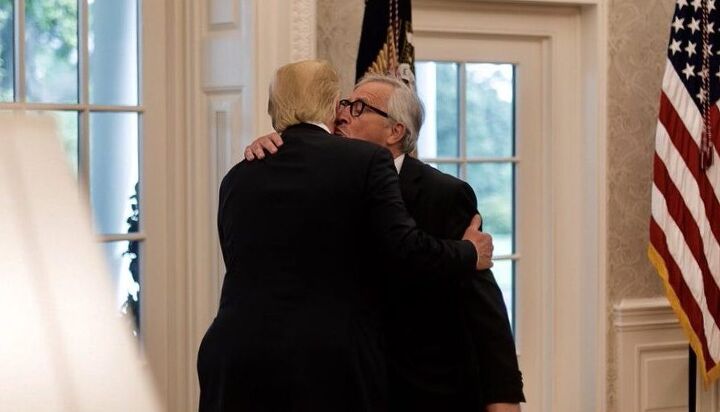



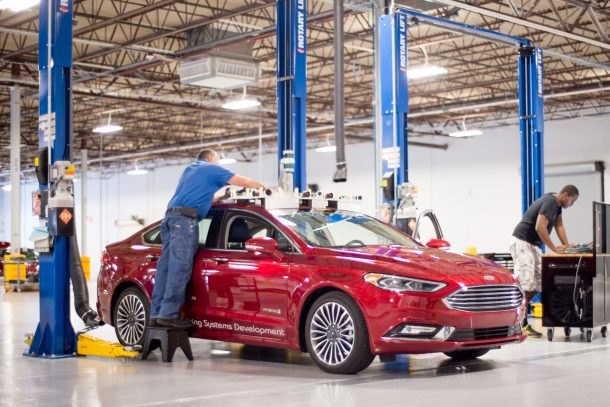











Recent Comments